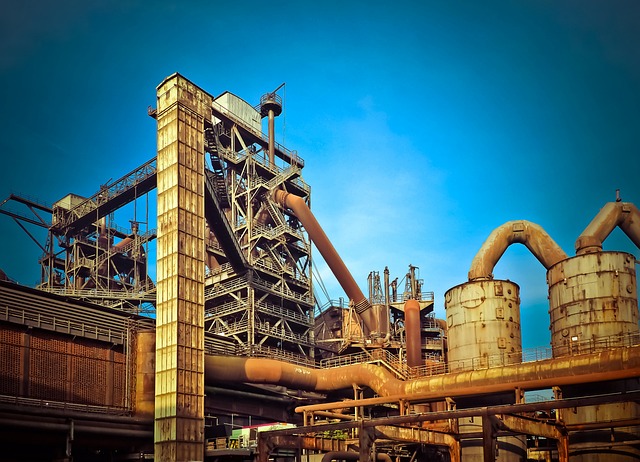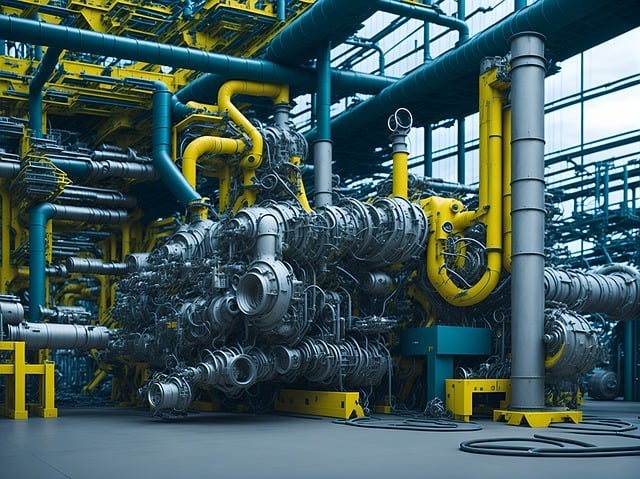Table of Contents
Industrial machines form the backbone of modern manufacturing processes, facilitating efficiency, precision, and scalability across various industries. This article explores the significance of industrial machines, their types, applications, technological advancements, and their impact on industrial productivity and innovation.

Importance of Industrial Machines
Industrial machines encompass a wide range of equipment designed for specific manufacturing tasks, including:
Automation: Streamlining production processes through automated machinery reduces labor costs, improves consistency, and enhances overall efficiency.
Precision and Quality: Advanced industrial machines ensure precise manufacturing tolerances, leading to higher quality products and reduced waste.
Scalability: Scalable production capabilities enable manufacturers to meet varying demand levels efficiently, from small-scale operations to mass production.
Types of Industrial Machines
CNC Machines (Computer Numerical Control): Utilized for precision machining tasks such as milling, turning, and drilling, controlled by computer programs for accuracy and repeatability.
Robotics: Automated robots perform tasks such as assembly, welding, painting, and material handling, enhancing production speed and safety in manufacturing environments.
Injection Molding Machines: Used in plastics manufacturing to mold intricate shapes and components through injecting molten material into molds under high pressure.
Industrial Presses: Hydraulic or mechanical presses shape metals, plastics, and other materials into desired forms through compression or stamping processes.
Applications Across Industries
Automotive Industry: Robotics and CNC machines are integral to automotive assembly lines for manufacturing parts, welding chassis, and precision machining engine components.
Aerospace and Defense: High-precision CNC machines produce complex aerospace parts, while robotic systems handle assembly, inspection, and maintenance tasks.
Electronics Manufacturing: Surface-mount technology (SMT) machines and robotic assembly lines ensure accurate placement of components in electronic devices.
Food and Beverage: Industrial machines automate food processing, packaging, and bottling processes, maintaining hygiene standards and ensuring product consistency.
Technological Advancements
- IoT (Internet of Things): Connected industrial machines gather real-time data for predictive maintenance, optimizing performance and reducing downtime.
- AI (Artificial Intelligence): Machine learning algorithms enhance machine efficiency, process optimization, and predictive analytics in industrial settings.
- Additive Manufacturing: 3D printing technologies create complex prototypes, customized parts, and tooling, revolutionizing rapid prototyping and production flexibility.

Impact on Industrial Productivity
Efficiency and Speed: Industrial machines operate at high speeds and precision, accelerating production cycles and meeting tight deadlines.
Labor Optimization: Automation reduces manual labor requirements, reallocating human resources to higher-skilled tasks and improving workplace safety.
Cost Reduction: Enhanced efficiency and reduced waste lead to lower production costs, contributing to competitive pricing and profitability for manufacturers.
Challenges and Considerations
Initial Investment: High upfront costs for purchasing and integrating industrial machines require careful financial planning and return on investment (ROI) analysis.
Maintenance and Training: Regular maintenance and skilled personnel training are essential to ensure optimal machine performance and longevity.
Integration and Compatibility: Compatibility with existing systems and infrastructure may require adjustments or upgrades to maximize operational efficiency.
Future Trends in Industrial Machines
Industry 4.0: Continued integration of IoT, AI, and big data analytics will drive smart manufacturing initiatives, enabling predictive maintenance and real-time production monitoring.
Green Technologies: Emphasis on sustainability will lead to energy-efficient industrial machines and processes, reducing environmental impact and resource consumption.
Conclusion
Industrial machines play a pivotal role in modern manufacturing, powering efficiency, precision, and innovation across diverse industries. From automotive assembly lines to electronics manufacturing and aerospace technologies, these machines enable scalable production, ensure product quality, and drive economic growth. Embracing technological advancements and sustainable practices in industrial machine design and operation will continue to enhance productivity, competitiveness, and sustainability in the global manufacturing landscape. As industries evolve, leveraging the capabilities of industrial machines remains essential for meeting consumer demands, driving innovation, and achieving operational excellence in an increasingly interconnected and competitive marketplace.